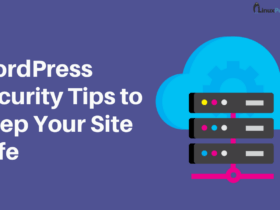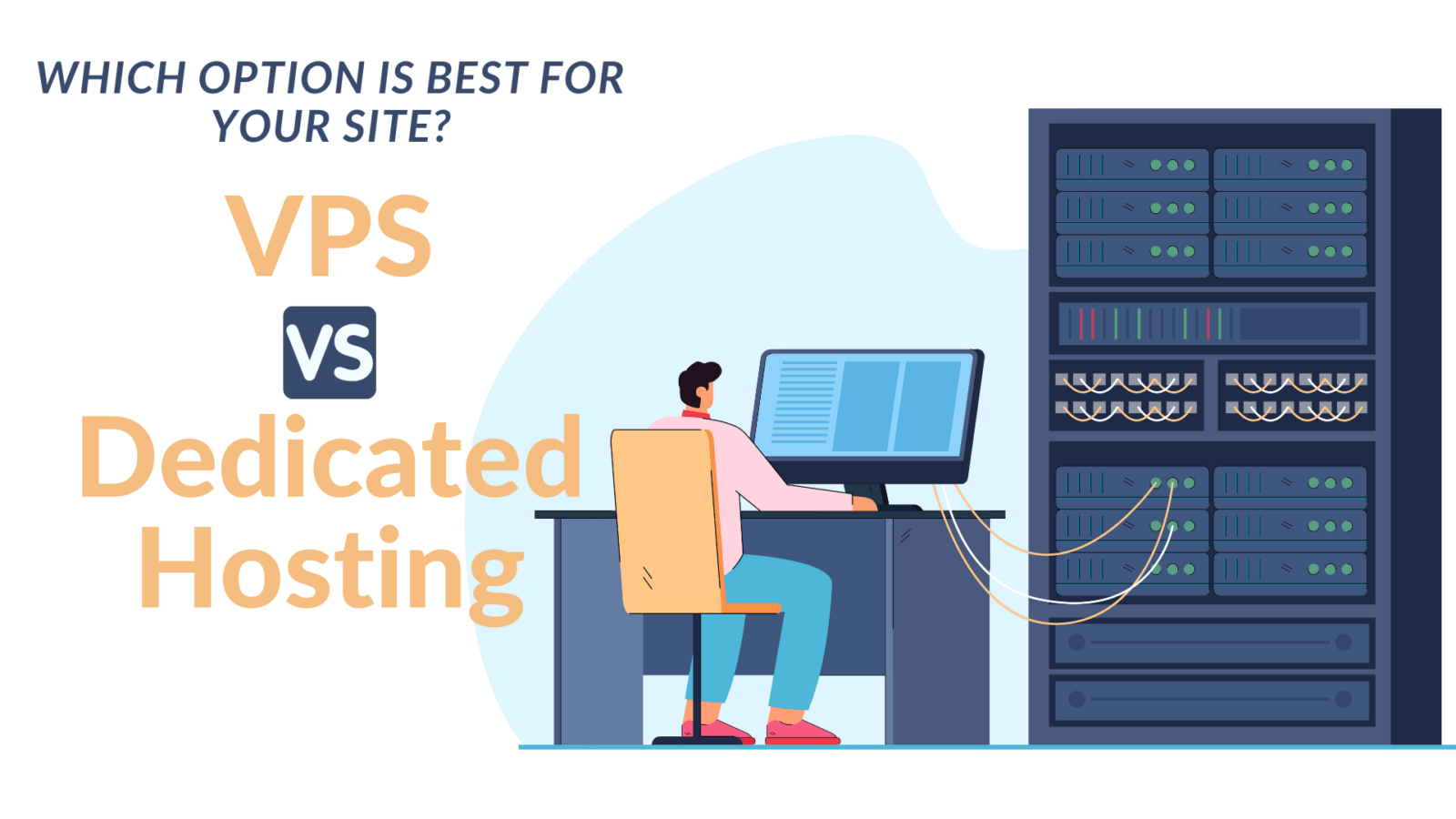VPS vs Dedicated Hosting – If your business projects begin to take off, you may exceed the capacity of your hosting plan.
Maybe your e-commerce website has become so popular that it requires more server resources than the shared hosting plan can provide. Perhaps your business in web design requires more sandbox space to test your sites for your customers. Your Hosting reseller company is booming, and now you’re prepared to take it to the next step.
Whatever the reason is, you could likely be required to upgrade to an online Virtual Private Server (VPS) or dedicated servers so that your business can continue to grow as well as keep your customers satisfied and remain up and running.
In this article, we’ll go over the functions of servers the benefits they offer, and how to choose the best option to meet your needs. But first, we will discuss the basics.
What is Web Hosting?

Web hosting is a process that allows your website or web application to be available online. It’s also among the most important factors to consider when creating a website.
There are many web hosting providers available worldwide. Hosting service providers manage the configuration, security, and operation of physical servers.
If you buy a hosting plan with a web-hosting service provider, it implies that you lease their space on their servers to store your site’s information like HTML and CSS files, media content, and other files.
The Importance of Web Hosting
Hosting companies for websites are accountable for maintaining and keeping their servers running at all times. They ensure the best performance for the web pages they host. Business owners who operate online with websites that are up and running at high speed can boost sales and improve the customer experience.
Furthermore, a good web hosting service can enhance the site’s search engine ranking (SEO). The host you select will affect the speed of your website as one of the key elements that affect how search engines like Google determine the rank of the web pages.
What is VPS Hosting?
The term “VPS” refers to an online private server, a mixture of dedicated and shared servers. The Linux dedicated server can only host one client, and a shared server can host multiple customers sharing resources on the same server.
VPS is a server that has multiple clients running on the same computer and uses a technology known as virtualization to split the physical server into several virtual servers. Since the clients are on an identical physical server, it’s as if they all have their own servers. Each user on the VPS server hosting is granted a part of the server’s physical assets; however, it does not need to share the resources with any other user.
Pros of VPS Hosting:
Improved Performance: Since you don’t have to share the resources you are allocated, your website’s speed of performance and efficiency will increase.
More Powerful: It will grant you administrative rights to modify settings or install any software and much more.
Cons of VPS Hosting:
Security: If viruses hit a virtual server, the virus will typically only affect the website(s) on the server. In rare cases, the “clever” virus may override the hypervisor and spread to all virtual servers on the physical server.
Configuration: If you select an unmanaged VPS, it might be challenging to configure and take time to get your site up and running.
Best and Cheap VPS Hosting provider
Read Also: Comparison between WP-Engine, Cloudways, and NameCheap
What is Dedicated Hosting?
As the name suggests, you get the entire physical server dedicated to your website with dedicated server hosting. There’s no sharing in any way, physical or digital.
You have access to all the resources in the server’s physical hardware, including memory on the hard drive and processing capacity. You can also set up the hosting environment to meet the specific needs of your business.
For example, if your physical server has a capacity of 1TB and 16GB of memory, your site will be capable of accessing all these resources.
In general, dedicated server hosting is likely more expensive than VPS hosting. But, you’ll enjoy a higher performance.
Pros of Dedicated Hosting:–
Secure, Powerful, and Speedy: Dedicated hosting is the most efficient, secure, and most efficient hosting solution currently available.
Complete Control: As you are leasing the entire server, you have complete control. Depending on what you need, you can have an utterly custom-built system, resources, and system.
Cons of Dedicated Hosting:–
Expensive: It’s the most expensive kind of web hosting. Despite its unique features, small-scale businesses can’t afford it.
More Technical: To make use of a dedicated server, you require more technical knowledge than an ordinary person since you’re responsible for managing security as well as installing and updating software, and so on.
VPS Hosting Vs Dedicated Hosting Features Difference
The primary difference between the two kinds of servers lies in whether or not you receive one piece of the pie or the whole pie. What does this mean exactly?
Do you require the entire pie? Or can a single piece of pie?
To help you make the right choice, here are the precise differences between dedicated servers and virtual private servers.
1. Cost
It’s pure economics. If a hosting provider could put more users onto the server at once, it can offer these services lower because the cost per user is lower. Results in VPS choices are much less expensive than dedicated alternatives.
The cheapest, unmanaged VPS packages start at $5 per month. That said, the VPS that has more resources or management capabilities could easily cost hundreds of dollars per month.
Even the cheapest, unmanaged server will cost a minimum of $50 per month — and it’s the lowest price. Other low-end dedicated servers tend to be more in the $80 to $100 range. Mid-range plans will cost about $250 per month, but the sky is the limit from there.
Based on your requirements, a fully managed dedicated hosting plan could cost you thousands of dollars per month. This is typically for those sites that have millions of visitors per month.
2. Security
Dedicated servers are typically known to be more secure than a VPS. This is because they are able to provide protection from all types of server risks that can affect your business. However, a VPS is afflicted with a specific vulnerability not present in a dedicated server containing the hypervisor.
Apart from being a perfect name, it also handles creating and managing all of the virtual machines (allotments) on the server. The majority of viruses affect only an individual virtual machine (i.e. an individual user account); however, in uncommon cases, they could bypass the hypervisor altogether and spread across all servers.
What do most people have to be concerned about? It’s not at all. However, if you’re in a security-conscious area (e.g. financial services), the security that the dedicated server can provide could be worth the cost.
3. Configuration
Flexible configuration is one of the areas that makes dedicated servers make themselves distinct. Since you’re the sole user on the server, you control everything entirely. You thus can do whatever you’d like to do using it, down to altering various components of its software or hardware.
If you have complete control over your server, it will be possible to create an ideal configuration for any website you’re operating. A majority of users will not have to or wish to experiment with these settings. However, an individual server is probably the only option for those who require the most specific configuration for a particular application or any other unique case.
4. Performance
Performance is primarily dependent on the specifications of the server’s hardware. If two servers have identical specifications, dedicated servers are guaranteed to offer better performance over VPS servers because they don’t divide the resources among users or when paired with using a VPS server.
In simple terms, there is a small tax on performance having a server running in an image-based system. But, as technology develops and improves, this tax shrinks and decreases.
The Key Takeaway
VPS is designed to serve bloggers and small businesses. who require more resources but do not have the funds to purchase an expensive server. This is why they have to use the same server as the other owners.
Most bloggers purchase the VPS hosting service because it’s affordable, and they’ve got the funds to maintain their blog. For enterprises, regardless of size, they typically opt for dedicated hosting. Dedicated hosting gives them complete security, complete dedicated resources, dedicated IP, and complete access to root servers.
I hope you’re clear about the differences between dedicated hosting and VPS.
Read Also: Shared WordPress Hosting vs. Managed WordPress Hosting
FAQ’s – VPS vs Dedicated Hosting
Specific businesses include large e-commerce sites, high-traffic platforms, and enterprises with stringent security and compliance needs. Dedicated hosting provides exclusive resources and robust security for critical operations.
A hypervisor in VPS hosting manages virtual machines and ensures resource isolation. While it enhances flexibility, a compromised hypervisor could pose security risks. VPS hosting is generally secure, but the hypervisor’s integrity is vital.
VPS hosting suits growing websites, small businesses, and development environments. When you need more control and resources than shared hosting, VPS is a cost-effective choice.
Key factors for choosing a web hosting provider include performance, support, scalability, security, pricing, a provider’s reputation, and customer service. Evaluate these aspects to match your hosting needs.































Leave a Reply